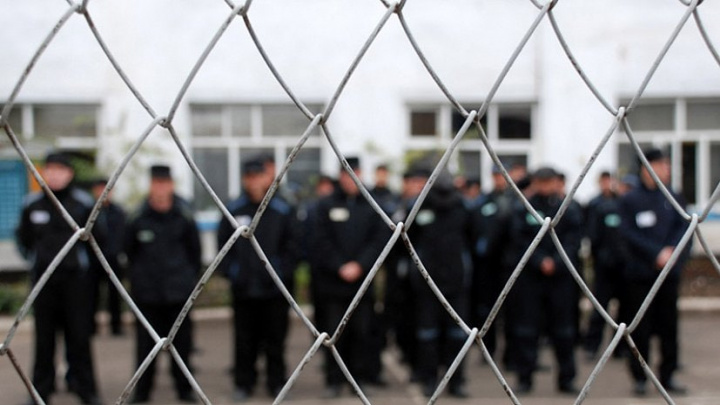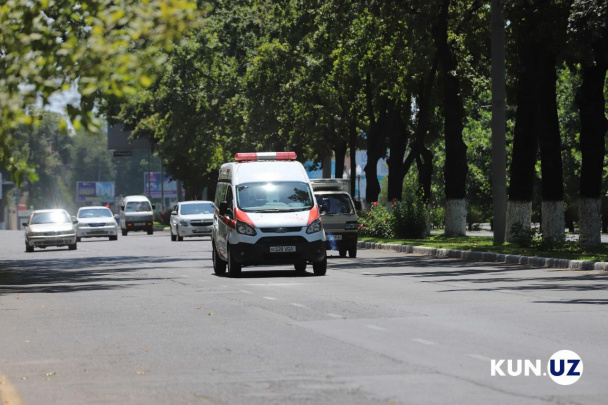Health Ministry denies Coxsackie virus outbreak among children in Uzbekistan
The Ministry of Health of Uzbekistan has dismissed recent social media claims about a widespread outbreak of the Coxsackie virus among children, calling them unsubstantiated.

Photo: Ministry of Health
In a statement, the Ministry’s press service addressed the circulating rumors and provided expert commentary from Nurmat Otabekov, First Deputy Chairperson of the Committee on Sanitary-Epidemiological Welfare and Public Health.
“The virus is named after the city of Coxsackie in the United States, where it was first identified. It belongs to the enterovirus family,” Otabekov explained. “There are more than 70 strains of the virus, with types A and B being the most common.”
The disease primarily affects children, particularly those aged between 3 and 10. Infections among adults are extremely rare.
Typical symptoms in children include a sudden rise in body temperature (up to 39–40°C), headaches, insomnia, and fatigue. After 2–4 days, the fever usually begins to subside. Other symptoms may resemble those of a common cold, including mild digestive discomfort, diarrhea, nausea, and vomiting.
Children infected with the Coxsackie virus often develop rashes on the palms of their hands, soles of their feet, and inside their mouths. In some cases, painful sores may form, leading to throat pain characteristic of stomatitis. This can be accompanied by high fever and loss of appetite.
Additional symptoms may include headaches and swollen lymph nodes.
The disease is most commonly spread during the summer months, especially when children use public swimming pools or come into direct contact with infected individuals. The incubation period typically ranges from 2 to 10 days, though it can sometimes last 2 to 5 days.
According to experts, the Coxsackie virus is present in many parts of the world and has occasionally been detected in Uzbekistan. However, laboratory facilities under the Committee on Sanitary-Epidemiological Welfare and the Virology Research Institute have not recorded any cases of the virus so far this year.
Therefore, there is no evidence to support the claim that the disease is currently spreading widely in Uzbekistan.
Importantly, there are established treatment protocols for the Coxsackie virus, and the illness typically resolves on its own without complications.
Nevertheless, parents are strongly advised not to administer antibacterial or antiviral medications to children without medical supervision, as these drugs are ineffective against the Coxsackie virus.
If a child shows symptoms that appear to be more severe, it is essential to seek medical attention for proper diagnosis and targeted care.
Recommended
List of streets and intersections being repaired in Tashkent published
SOCIETY | 19:12 / 16.05.2024
Uzbekistan's flag flies high on Oceania's tallest volcano
SOCIETY | 17:54 / 15.05.2024
New tariffs to be introduced in Tashkent public transport
SOCIETY | 14:55 / 05.05.2023
Onix and Tracker cars withdrawn from sale
BUSINESS | 10:20 / 05.05.2023
Latest news
-
Toxic smoke covers Navoi city, residents report health concerns, Navoiyazot denies responsibility
SOCIETY | 19:39 / 19.07.2025
-
Chinese company Baibuting launches $1.8 billion green energy project in Akhangaran
BUSINESS | 18:16 / 19.07.2025
-
Baby born aboard Uzbekistan Airways flight from Istanbul to Tashkent
SOCIETY | 18:02 / 19.07.2025
-
Uzbekistan set to increase fruit and vegetable exports to Mongolia tenfold, invest $100 million in joint projects
BUSINESS | 17:59 / 19.07.2025
Related News

14:09 / 19.07.2025
Rules for releasing inmates with severe health conditions to be amended

15:56 / 17.07.2025
Businesses urge government to ease import registration for medical equipment

16:03 / 15.07.2025
Uzbekistan’s mental health index falls below global average

13:45 / 10.07.2025



